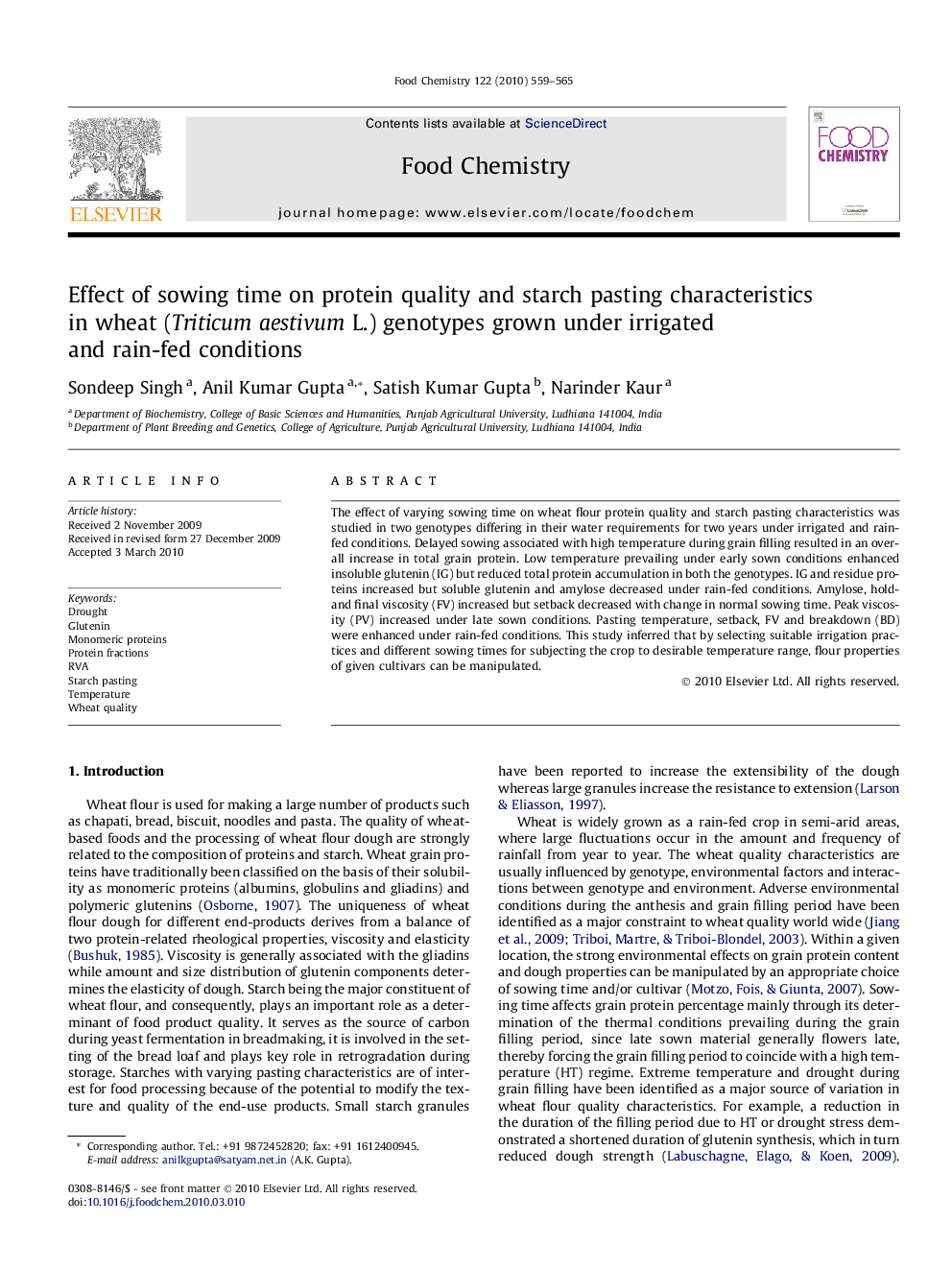| Article ID | Journal | Published Year | Pages | File Type |
|---|---|---|---|---|
| 1190099 | Food Chemistry | 2010 | 7 Pages |
The effect of varying sowing time on wheat flour protein quality and starch pasting characteristics was studied in two genotypes differing in their water requirements for two years under irrigated and rain-fed conditions. Delayed sowing associated with high temperature during grain filling resulted in an overall increase in total grain protein. Low temperature prevailing under early sown conditions enhanced insoluble glutenin (IG) but reduced total protein accumulation in both the genotypes. IG and residue proteins increased but soluble glutenin and amylose decreased under rain-fed conditions. Amylose, hold- and final viscosity (FV) increased but setback decreased with change in normal sowing time. Peak viscosity (PV) increased under late sown conditions. Pasting temperature, setback, FV and breakdown (BD) were enhanced under rain-fed conditions. This study inferred that by selecting suitable irrigation practices and different sowing times for subjecting the crop to desirable temperature range, flour properties of given cultivars can be manipulated.
